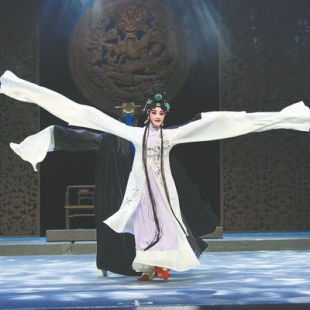Ganju Opera's enduring legacy passes on
Chen Li ignites youth interest with hands-on teaching style


Historical roots
Ganju Opera has deep historical roots. During the 1950s and 60s, it thrived in Leping city with more than 400 ancient stages, over 20 percent of which were well-preserved from the Ming and Qing dynasties (1368-1911). In 2001, Ganju Opera was recognized as a national intangible cultural heritage. Chen is the inheritor of the Ganju Opera.
Zhou Xiaoli, a freshman at the university, once wore a costume and performed in Chen's class. She found Chen's interactive teaching method captivating and developed a keen interest in traditional art.
"It was a first-time experience for me and my classmates, so everyone was very excited. When the teacher demonstrated the movements, her every expression and action carried the charm of traditional culture," Zhou said.
"We didn't know much about Ganju Opera before, but this fresh and interesting class made me love it."
In early March, a student posted a video clip of the first class on the short video platform Douyin, and it quickly went viral. Many people from outside the university also joined the class.
"We never expected the class to become so popular. For a class that began at 7 pm, many would arrive at 5:30 pm, and finding a seat became a challenge," Zhou said.



































